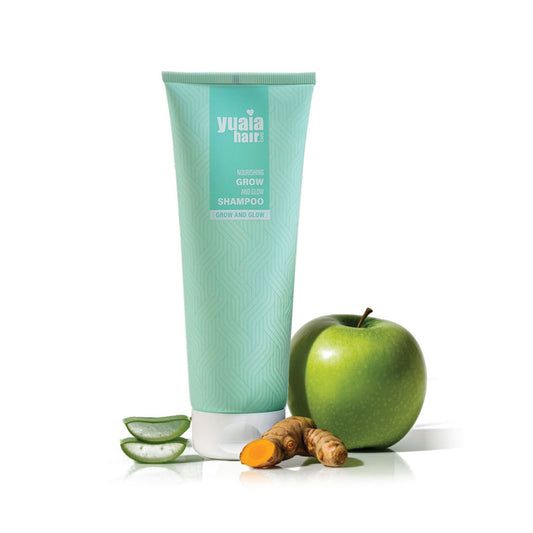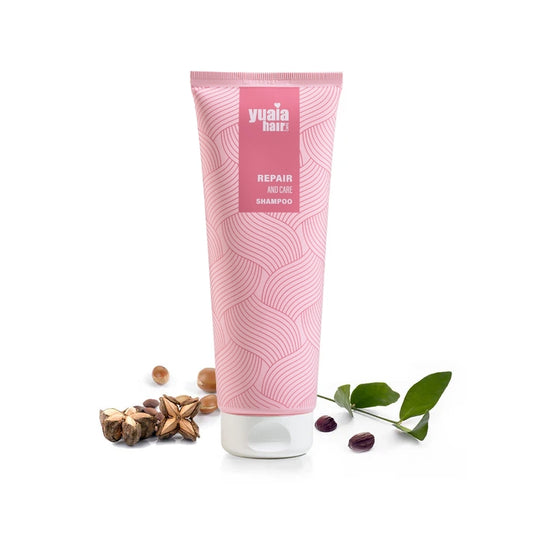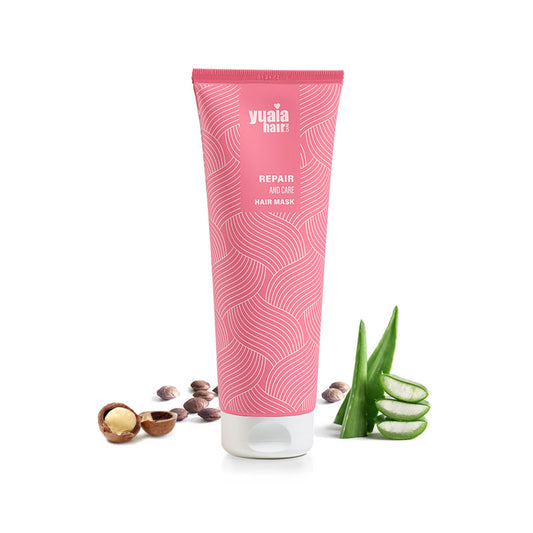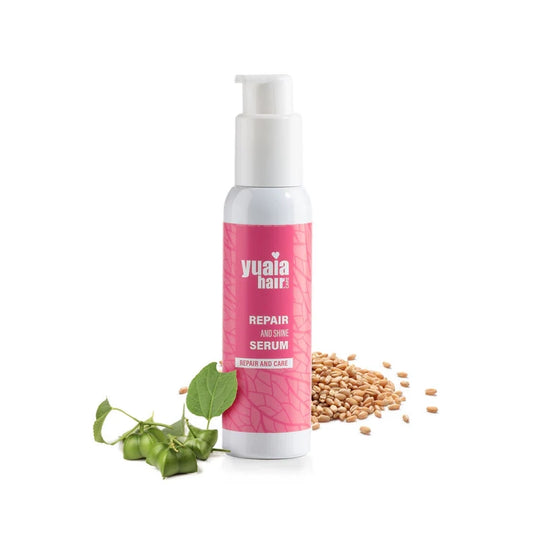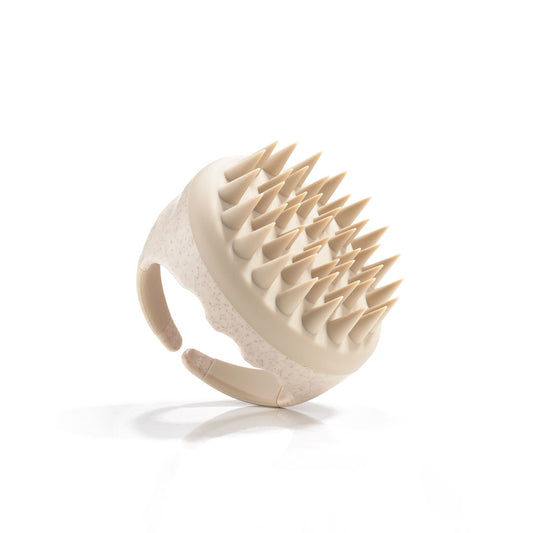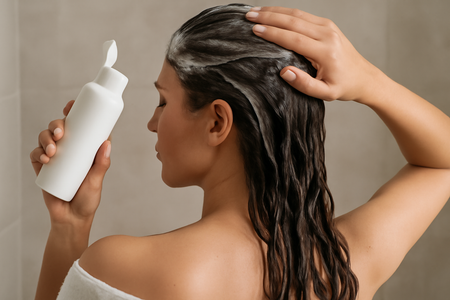
Ceramide and lipid replenishment: Key ingredients for repair
Maintaining a healthy scalp barrier requires attention to the lipids and ceramides that form its structure. These components are crucial for repairing and sustaining the barrier's protective capabilities. Ceramides, along with fatty acids and cholesterol, help rebuild the scalp's outer layer, reducing dryness and irritation. Incorporating products rich in these ingredients can significantly improve the scalp's resilience and comfort.
Microbiome health: Managing fungal overgrowth
A balanced scalp microbiome is essential for barrier health. The presence of Malassezia fungi, a common scalp inhabitant, can lead to barrier dysfunction and dandruff when overgrown. Managing this balance is key to preventing irritation and maintaining a healthy scalp. Antifungal treatments can help control fungal populations, supporting the microbiome's equilibrium and the scalp's overall health.
Antioxidant support: Protecting against oxidative stress
Oxidative stress can compromise the scalp barrier, leading to inflammation and damage. Antioxidants such as niacinamide and panthenol are beneficial in neutralizing oxidative agents, thus supporting the scalp's health. Incorporating antioxidant-rich products into your hair care routine can help protect the barrier from environmental aggressors and promote a healthier scalp environment.
Scalp massages: Encouraging blood flow for barrier health
Regular scalp massages can enhance blood circulation, which in turn supports follicle health and barrier function. By gently massaging the scalp, you can promote nutrient delivery and waste removal, which are vital for maintaining a robust scalp barrier. To perform an effective scalp massage, use your fingertips to apply gentle pressure in circular motions across the scalp for a few minutes daily.
Environmental protection: Shielding the scalp from damage
Protecting the scalp from environmental damage is vital for maintaining barrier integrity. Sun exposure and pollutants can weaken the scalp barrier, leading to dryness and irritation. Practical measures such as wearing hats and using UV protection sprays can help shield the scalp from harmful rays and pollutants, preserving its health and function.
Hydration essentials: Keeping the scalp moisturized
Proper hydration is essential for a healthy scalp barrier. Ensuring adequate internal hydration by drinking water and using hydrating hair care products can help maintain moisture balance. Lightweight leave-in hydrating products are particularly beneficial, as they provide continuous moisture without weighing down the hair. This approach helps in preserving the scalp's natural oils and barrier function.
Antioxidant support: Protecting against oxidative stress
Oxidative stress can be detrimental to the scalp barrier, leading to inflammation and potential damage. Antioxidants like niacinamide and panthenol are effective in neutralizing these oxidative agents, thereby supporting overall scalp health. Incorporating antioxidant-rich products into your hair care routine can protect the barrier from environmental aggressors, promoting a healthier scalp environment. This proactive approach ensures that your scalp remains resilient against daily stressors.
Scalp massages: Encouraging blood flow for barrier health
Enhancing blood circulation through regular scalp massages is a beneficial practice for maintaining barrier health. By gently massaging the scalp, you can improve nutrient delivery and waste removal, which are vital for a robust scalp barrier. To perform an effective scalp massage, use your fingertips to apply gentle pressure in circular motions across the scalp for a few minutes daily. This simple yet effective technique can contribute significantly to overall scalp wellness.
Environmental protection: Shielding the scalp from damage
Environmental factors such as sun exposure and pollutants can weaken the scalp barrier, leading to dryness and irritation. To protect the scalp from these damaging elements, practical measures like wearing hats and using UV protection sprays are recommended. These steps help preserve the scalp's health and function, ensuring that it remains resilient against external stressors. By incorporating these protective measures, you can maintain a healthy and balanced scalp environment.
Hydration essentials: Keeping the scalp moisturized
Maintaining proper hydration is crucial for a healthy scalp barrier. Ensuring adequate internal hydration by drinking water and using hydrating hair care products can help maintain moisture balance. Lightweight leave-in hydrating products are particularly beneficial, as they provide continuous moisture without weighing down the hair. This approach helps in preserving the scalp's natural oils and barrier function, ensuring that your scalp remains well-moisturized and protected.
Frequently asked questions
How often should I wash my hair to maintain a healthy scalp barrier?
Washing frequency can vary depending on your hair type and lifestyle. Generally, washing your hair 2-3 times a week is recommended for maintaining a healthy scalp barrier, but those with oily hair may need to wash more frequently, while those with dry hair may wash less often.
Can diet affect my scalp barrier?
While we do not discuss diet in detail here, maintaining a balanced and nutritious diet can support overall scalp health and barrier function. It's important to focus on a well-rounded diet for optimal health benefits.
What are the signs of a damaged scalp barrier?
Common symptoms of a damaged scalp barrier include dryness, flakiness, and irritation. To address these issues, consider using gentle hair care products and moisturizing treatments to restore balance and health to your scalp.
 2-5 day delivery
2-5 day delivery
 25.000+ satisfied customers
25.000+ satisfied customers
 Satisfaction Guarantee
Satisfaction Guarantee



















